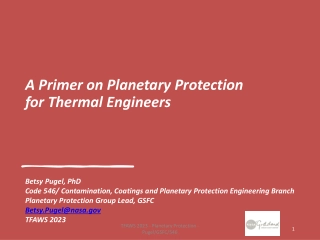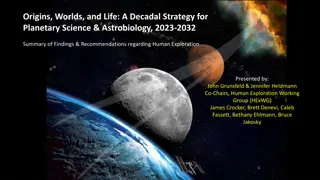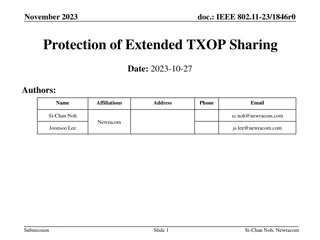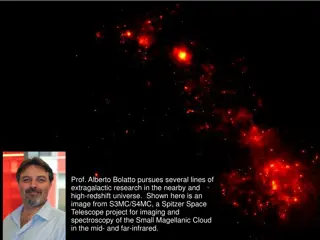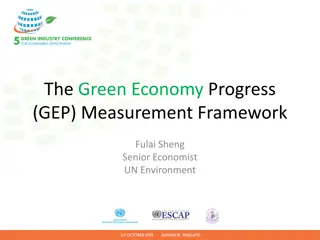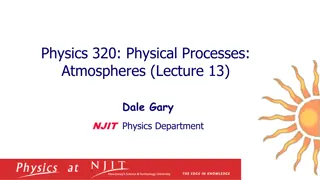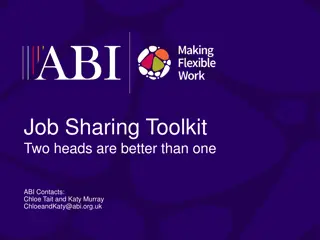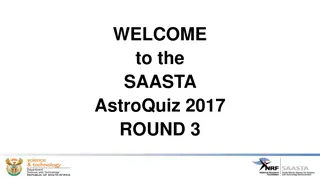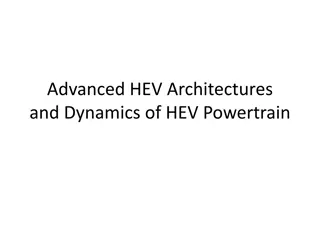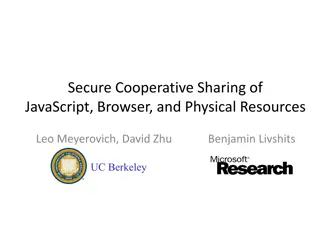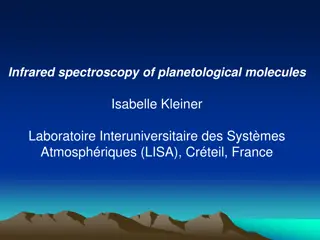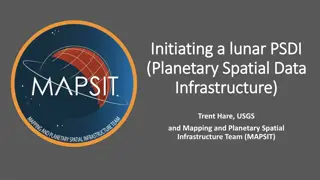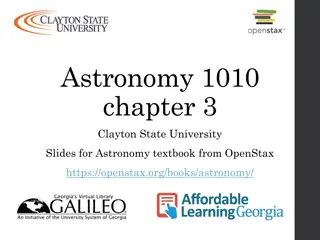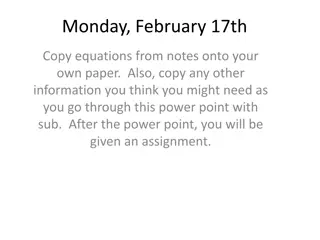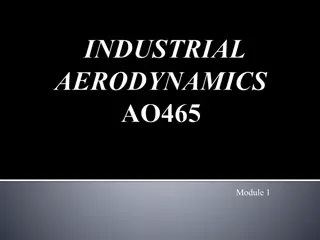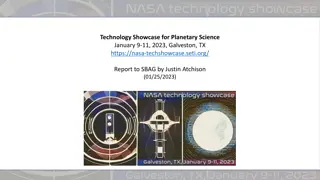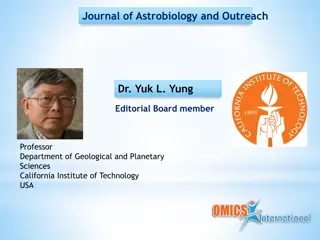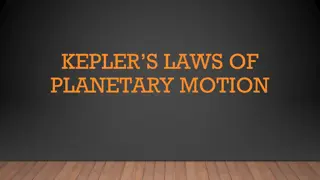Sharing Planetary Science
Dive into how educators engage the public in planetary science. Join the conversation on June 12th, 2018 to explore the importance of education in this field.
Download Presentation

Please find below an Image/Link to download the presentation.
The content on the website is provided AS IS for your information and personal use only. It may not be sold, licensed, or shared on other websites without obtaining consent from the author.If you encounter any issues during the download, it is possible that the publisher has removed the file from their server.
You are allowed to download the files provided on this website for personal or commercial use, subject to the condition that they are used lawfully. All files are the property of their respective owners.
The content on the website is provided AS IS for your information and personal use only. It may not be sold, licensed, or shared on other websites without obtaining consent from the author.
E N D
Presentation Transcript
Sharing Planetary Science Making Planetary Science Relevant LPI Education and Public Engagement June 12, 2018
Online Participants Joining online? Please share your thoughts and responses throughout the session in the chat box. You are a discussion group. Be sure to use the drop box while chatting to direct responses to all attendees, not just the host. Having trouble hearing? Call in to join by phone: 1-650-429-3300 Call-in toll number (US/Canada) And enter meeting #630-801-230
Making It Relevant Imagine you are giving a presentation about your research (or planetary science in general) to a public audience, to a school group, or to a club. What do we mean by relevant? Why is it useful or important to make it relevant for your audience?
Research on Relevance Wilson and Sperber (2004) : the search for relevance is a basic feature of human cognition, which communicators may exploit. Roberson (2013): When a speaker provides relevance for a listener, the speaker conveys his or her intentions to the listener by tapping into the listener s cognitive need to make sense of the world. Relevance is important to teaching and learning because it is directly related to student engagement and motivation (Frymier & Schulman, 1995; Martin & Dowson, 2009).
Research on Relevance Relevance can be demonstrated by connecting to how the content is useful, or how it is related. Utility value is purely academic and emphasizes the importance that content has for the listener s future goals (Ormrod, 2006). Relatedness on the other hand, answers the question What s this have to do with me? For further information about relevance, see Helping Students Find Relevance, Psychology Teacher Network, American Psychological Association, Sept 2013. http://www.apa.org/ed/precollege/ptn/2013/09/students-relevance.aspx
Audiences Making it relevant will depend on your audience. What are some examples of audiences you might address? Image result for jsc astronomical society Image result for space center houston Image result for conference presentation Image result for kiwanis
Relevance Factors What are some ways to make planetary science relevant to an audience?
Relevance Factors Please sort the cards: Which factors are easier to connect to your research? Which factors are you more comfortable using in a presentation? Discuss with your group or in the chat. Cards are online at www.lpi.usra.edu/education/scientist- engagement/Relevance-cards.pdf
Connecting to their Knowledge Most elementary students know the names of the planets and their order. They may be studying lunar phases. Many middle school students have learned some characteristics of planets, the structure of the Earth, lunar phases, and plate tectonics. Many high school students and adults do not recall anything further about planetary science or solar system exploration; however, select audiences will know much more. How does this affect your public engagement?
Your Presentation Goals How you frame your presentation and incorporate relevance will also depend on your goals. Do you want to: Spark their interest in science? Increase your audience s understanding of your research? Increase their awareness of or interest in planetary science? Increase their understanding of what science is and how it is done? Increase their understanding of or interest in the solar system? Of solar system exploration? Of NASA? Other?
An Example Topic: The Solar System My Goals: increase students interest in science, and knowledge of the solar system Audience: classroom of elementary students Factors I would use: Audience s knowledge, local culture These factors connect because students will be studying the solar system, including the order of the planets and the scale. If the class has a large number of Spanish-speaking students, I can connect the days of the week in Spanish to the names of the planets. How I would incorporate them: I would invite the students to share what they know about the solar system particularly at the beginning, and use what they ve shared throughout the talk. I would incorporate the scale of the solar system during the presentation. I would invite the students to help me determine which day of the week is named after which planet, as we go through the solar system.
Planning Your Presentation Spend 5 minutes jotting down your ideas on the worksheet. For those online, the worksheets are available at www.lpi.usra.edu/education/scientist- engagement/Relevancy-Worksheet.pdf Please spend 5 minutes sharing your thoughts with colleagues at your table or online. Top thoughts to share with everyone?
Thanks! We have a very short evaluation form; we would greatly appreciate your feedback! For any joining us virtually, please fill out the same form at https://www.surveymonkey.com/r/planetrelevance. We will be facilitating sessions every other month; details are at www.lpi.usra.edu/education/scientist-engagement. Feel free to contact us with your thoughts and suggestions!
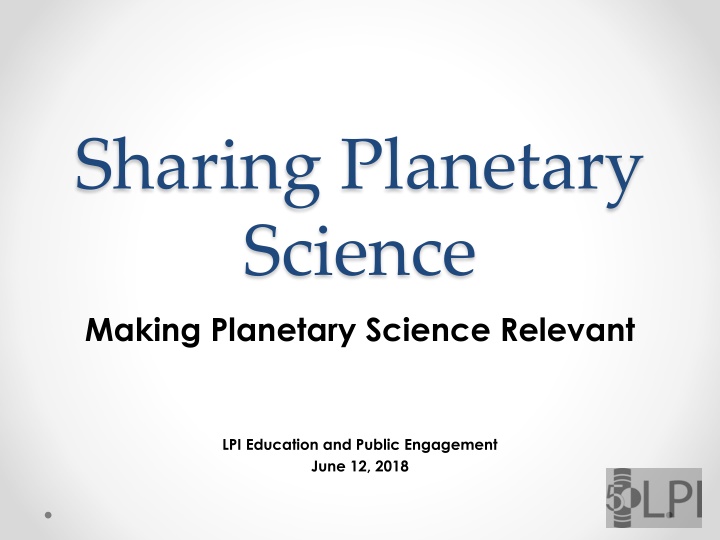

![❤[PDF]⚡ Planetary Ring Systems (Springer Praxis Books)](/thumb/21506/pdf-planetary-ring-systems-springer-praxis-books.jpg)
